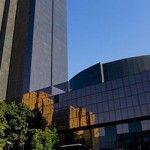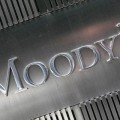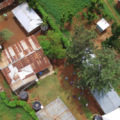Cape Town – South Africa’s low lending rate and the Reserve Bank’s stockpiling of more than $50 billion in foreign currency would help shield the country from some of the turmoil experienced by global markets in recent days, Johan van den Heever, the Reserve Bank’s deputy chief economist said today.
Briefing the National Assembly’s finance committee on the release of the Reserve Bank’s 2011 Annual Economic Report – which highlighted South Africa’s poor export performance and slow recovery of lending by banks – Van den Heever said the impact of this week’s market turmoil would, however, impact “fairly heavily” on consumer and business confidence.
“It is quite clear that people will under the circumstances be more reluctant to enter into bold ventures, big capital expenditure, really heavily-geared undertakings and so that it is not good news for short-term growth and longer-term investment,” he said.
But he believed that despite this, South Africa would continue to grow – on the back of a consumer spending upswing, combined with low interest rates, a strong financial system and relatively good fiscal conditions.
He said one positive to come out of the market chaos was that the high level of unexpectancy had led to an increase in the gold price, which would benefit the economy.
Turning to the bank’s annual economic report, the Reserve Bank’s head of financial analysis and public finance, Vukani Mamba, said even though the country’s repo rate was at a low of 5.5% – the lowest in 30 years – lending by banks had not picked up substantially.
He said the recovery of the credit advances had been slower than that following South Africa’s previous recessions namely in 1974, 1982 and 1990.
The report revealed that the advance of credit had in February this year increased by just 5% above the level it stood at in May 2009, just months before the economy began recovering in September 2009.
Mamba attributed this to the poor recovery of the productive sectors, the high number of job losses (reducing the number of those who can qualify for credit) and the high levels of indebtedness of consumers.
Banks had also incurred high impairment rates, which had seen them pulling back on lending.
The report said the level of impaired advances, which grew to 6.1% in December 2009, had levelled off last year and stood at 5.8% in April this year.
Despite this, South Africa’s percentage of non-performing loans remained “relatively high” when compared with other emerging-market countries.
At just under 6% in the fourth quarter of 2010, the level of non-performing loans was lower than Russia (at over 9%), but higher than Brazil and Chile (3%) and India (just below 3%).
But Mamba believed the bank’s prudence had been instrumental in protecting the economy, when considering that the global financial crisis was triggered by US banks lending to highly indebted individuals.
Another concern highlighted by the report is South Africa’s poor performance of exports.
Van den Heever pointed out that the country’s exports had not kept track with fellow BRICS countries and advanced economies, which had rebounded at a far faster rate following the end of the recession.
He attributed the poor performance of exports to “quite a long list” of problems and not just to the strength of the rand.
These included infrastructure bottlenecks, lack of electricity capacity and the falling quality of some of the country’s minerals, including the grade of gold mined.
South Africa’s productivity was also a challenge, particularly when compared with a country like China, said Van den Heever.
Added to this, many of South Africa’s export destinations were in the developing world – Europe, Japan and the US – where the recession was the deepest.
He said if South Africa’s export performance continued its lack lustre performance, the fiscus would be reduced.
However, he said South Africa had built up its foreign currency reserves from $8 billion in 2002 to about $50 billion – which would allow the country to pay for imports if exports continued to under perform. – BuaNews













Speak Your Mind